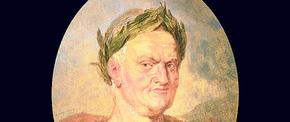The views expressed in our content reflect individual perspectives and do not represent the authoritative views of the Baha'i Faith.
The essential unknowability of God—a teaching of the Baha’i Faith and several other religious traditions—means different things to different people.
Many people intuitively understand that the Source of this infinitely vast and varied phenomenon we call “existence” falls far beyond the reach of our finite minds.
Others find that idea hard to distinguish from agnosticism, and ask: How can we love and worship what we can’t comprehend?
Blaise Pascal wrote, “The heart has reasons that reason does not know.” The logic of how a finite mind could know an infinite God often isn’t the real question. One of the Baha’i daily prayers addresses God saying, “Thou hast created me to know Thee and to worship Thee”—to know God, to connect with the infinite, is one of the deep impulses of the human spirit.
 In line with this, I would like to suggest that the Baha’i teachings allow us to know God very well—as long as we recognize and avoid a profound pitfall.
In line with this, I would like to suggest that the Baha’i teachings allow us to know God very well—as long as we recognize and avoid a profound pitfall.
The pitfall consists in confusing God’s eternal essence and God’s manifestation. In general—whether you believe in Jesus, Krishna, Baha’u’llah, or even the natural universe itself as a manifestation of God–then in effect we end up with two ‘Gods,’ a real, but unknowable God, and a lesser, substitute ‘God’ that we can know, at least to some extent.
Such a picture violates, in spirit if not in letter, the monotheism that really resides at the core of all faiths, including the Baha’i Faith.
Rather than trying to conceive of God as an “unknowable essence”–frustrating since it’s impossible to do anyway–let’s think about God as God—as One God, essentially unknowable but relatively knowable, meaning that we can know him in his relation to us.
This is not too different from how we get to know one another. We do not know other people’s minds directly, but through their actions and words. We do not even know ourselves directly—many psychologists believe that we know ourselves in terms of our relation to other people and our environment. If even our knowledge of ourselves is relative, it should be no surprise that our knowledge of God is relative too. This does not mean that it isn’t real.
In Some Answered Questions, Abdu’l-Baha wrote:
As our knowledge of things, even of created and limited things, is knowledge of their qualities and not of their essence, how is it possible to comprehend in its essence the Divine Reality, which is unlimited? For the inner essence of anything is not comprehended, but only its qualities. For example, the inner essence of the sun is unknown, but is understood by its qualities, which are heat and light. The inner essence of man is unknown and not evident, but by its qualities it is characterized and known. Thus everything is known by its qualities and not by its essence. Although the mind encompasses all things, and the outward beings are comprehended by it, nevertheless these beings with regard to their essence are unknown; they are only known with regard to their qualities.
Then how can the eternal everlasting Lord, Who is held sanctified from comprehension and conception, be known by His essence? That is to say, as things can only be known by their qualities and not by their essence, it is certain that the Divine Reality is unknown with regard to its essence and is known with regard to its attributes. – Some Answered Questions, pp. 220-221.
No coherent belief system can take an unknowable essence as its starting point and deduce anything about anything. Theologians always take the same starting point as the “plain believer”—the accepted fact of God. This mystery reason cannot penetrate, though the heart does recognize and respond.
Once we have accepted this mystery—that God, although infinite, unconditioned and utterly beyond our words and conceptions, does relate to us, and does so in infinitely many ways, as our Creator, Nourisher, Teacher, to name just a few attributes—then we can begin to build some inner personal concept of God. Baha’u’llah wrote:
The essence of belief in Divine unity consisteth in regarding Him Who is the Manifestation of God and Him Who is the invisible, the inaccessible, the unknowable Essence as one and the same. By this is meant that whatever pertaineth to the former, all His acts and doings, whatever He ordaineth or forbiddeth, should be considered, in all their aspects, and under all circumstances, and without any reservation, as identical with the Will of God Himself. – Baha’u’llah, Gleanings from the Writings of Baha’u’llah, p. 167.
The Qur’an warns those who “wish to separate God from His messengers…” – 4:150; and Jesus Christ taught, “I and my Father are one.” – John 10:30.
Baha’is believe that Baha’u’llah is the most recent manifestation of God for humanity. During his physical lifetime, Baha’u’llah left an indelible impression on everyone he met, and despite forty years of torture, exile and imprisonment, founded a global Faith which unites people from every corner of the planet. The roughly six million words of his revelation, a sign of his continuing presence in the world, give us more than enough insight into the character of the Creator to love, trust and worship God, even while we stand in awe of the divine infinity—the mystery of existence that our minds can never decipher, in this world or the next.

















Comments
Sign in or create an account
Continue with Facebookor